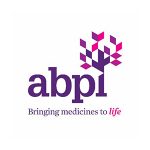A four year high for pharmaceutical industry apprenticeships
In the past four years, there has been a significant rise is apprenticeships within the pharmaceutical industry. PIF Spoke to the Association of the British Pharmaceutical Industry (ABPI) to learn about the results of their survey, investigating the links between the industry and higher level apprenticeships.
Links between industry and academia
The ABPI asks companies to submit data about their academic links across their entire business, from undergraduate placements to large-scale collaborative projects which bring together industry, academia, charities and the NHS.
“While there has been a steady uptake of apprenticeships year on year which is certainly encouraging, this alone will not bridge the skills gaps within the pharmaceutical industry,” says Andrew Croydon, Head of Education and Academic Liaison. “The growth in IT apprenticeships and undergraduate placements are important and goes some way in filling the skills gap within emerging technologies but if the UK is to retain and grow its world-leading life sciences status, it is crucial to develop a strategic approach in developing a skills pipeline for the entire Life Sciences sector.”
An alternative career path
Apprenticeships are increasingly being viewed as a viable option to a more traditional academic career path and numbers have risen across the board within the life sciences sector; IT (82% rise), engineering (21% rise) and R&D (165% rise). Only the number of manufacturing apprentices has dropped, by 13%.
Global pharmaceutical companies in the UK are turning to apprenticeships to ensure a steady stream of highly-skilled workers and fill skills gaps in key roles. Since 2015, apprenticeships within the industry are up by 31% (from 297 to 388) and up by 169% since 2013.
Undergraduate placement increases
The survey also found undergraduate placements had increased; 704 undergraduate industrial placements (IPs) were recorded in 2017, an increase of 17% from 2015.The number of undergraduates starting sandwich course (combining study with a work placement), increased by 36% over the last 5 years.
The University of Bath tops the list for the most undergraduates in IPs (59) for the second survey in a row, with most of the students in R&D. They’re followed by Loughborough University with 31 IPs, with 9 in manufacturing.
The importance of the Life Science sector
“The importance of the Life Sciences sector was highlighted by the Government’s in Industry Strategy, and it is crucial that we fully exploit the inherent potential this sector holds in order to anchor the UK as a global hub of research and innovation,” says Malcolm Skingle C.B.E, Director of Academic Liaison at GSK and Chair of the ABPI Academic Liaison Expert Network. “Links between industry and academia are fundamental to this goal, and with the upcoming departure of the UK from the European Union, increasing collaboration is imperative to further developing the UK science base as a whole.”
Contact ABPI
By 2020, the aim is to reach 20,000 apprenticeships in the science sector and with the pharmaceutical apprenticeships continuing to increase, this goal will hopefully be met. For more information about the results of this survey, contact the ABPI today.
Get the latest process industry news
Interested in receiving even more industry-leading news from Process Industry Forum delivered directly to your inbox? Then sign up to our free newsletter. Bringing you the latest news, trends, innovations and opinion from across the process industry, our exclusive newsletter gives you all the industry insights of the moment in one, easy-to-digest bulletin. Stay ahead of the competition with regular process industry news instalments from PIF.

